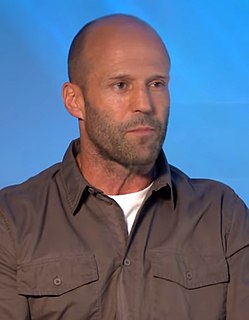A Quote by George Saunders
My theory for nonfiction is that nobody can be free of some kind of conceptions about whatever story they're writing. But if you can find a way to build those into the story, then the story becomes a process of deconstructing and heightening and sometimes changing those notions and that makes dramatic tension. The initial statement of your position, and then letting reality act on you to change it, is pretty good storytelling.
Related Quotes
Each story presents a mystery that has to be solved in the process of writing. When I'm at work on a story, I'm completely immersed in that world and in the lives of those characters; they're utterly real to me. Then, when I've completed the story, it all just falls away. The whole compulsion to understand is over.
The thing that's helped me from wrestling is sometimes when you do live television, things change immediately, so you can be immersed in one story and then the story shifts. Ultimately, if you just get the point of what you're trying to accomplish, if you know the story, then you can put forth a good product.
Sometimes the music just has to tell the story without you trying to tell the story. It depends on the type of music you want to make. If it makes you feel good and party then you go with that. If it makes you feel like speaking on something real and doing a story then it's the beat just has to have the story.
I think that people have to have a story. When you tell a story, most people are not good storytellers because they think it's about them. You have to make your story, whatever story it is you're telling, their story. So you have to get good at telling a story so they can identify themselves in your story.
Experimental novels are sometimes terribly clever and very seldom read. But the story that appeals to the child sitting on your knee is the one that satisfies the curiosity we all have about what happened then, and then, and then. This is the final restriction put on the technique of telling a story. A basic thing called story is built into the human condition. It's what we are; it's something to which we react.
You have to do three things really well to make a successful film. You have to tell a compelling story that has a story that is unpredictable, that keeps people on the edge of their seat where they can't wait to see what happens next. You then populate that story with really memorable and appealing characters. And then, you put that story and those characters in a believable world, not realistic but believable for the story that you're telling.






































